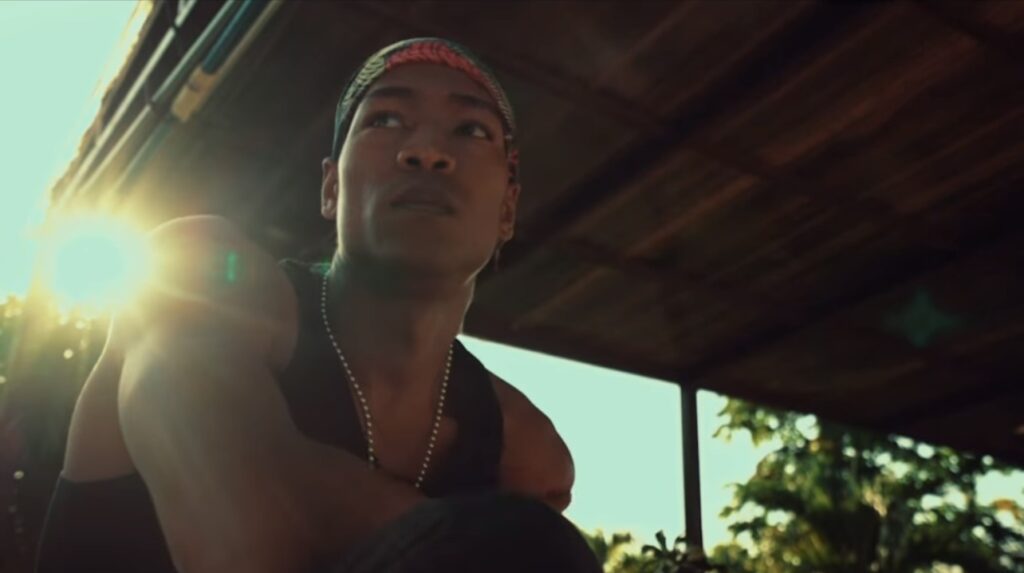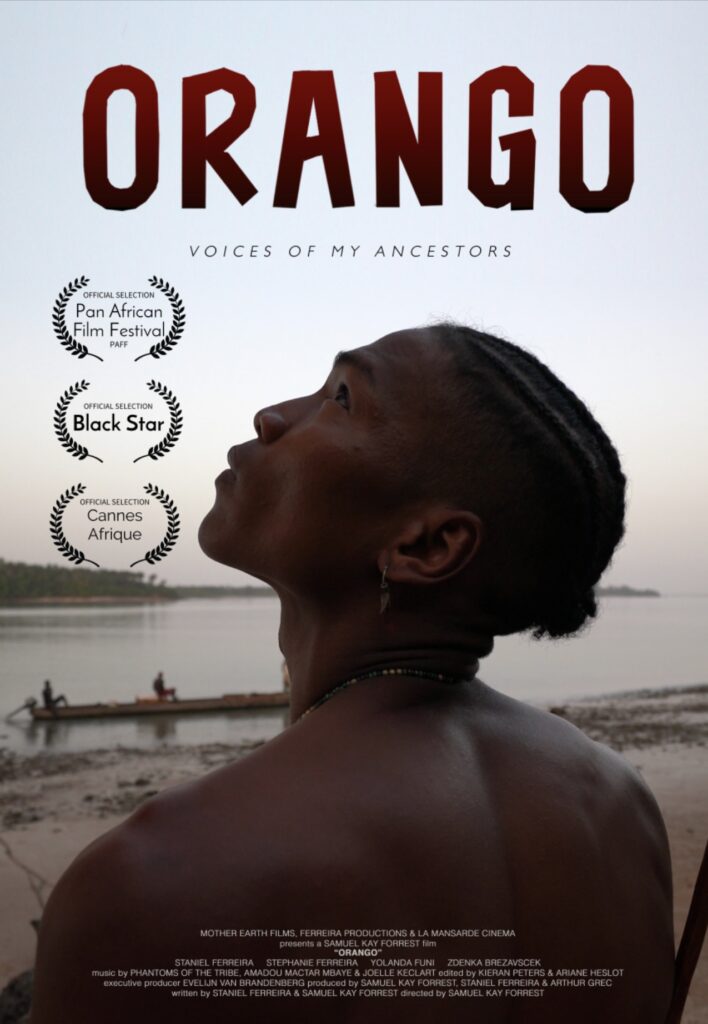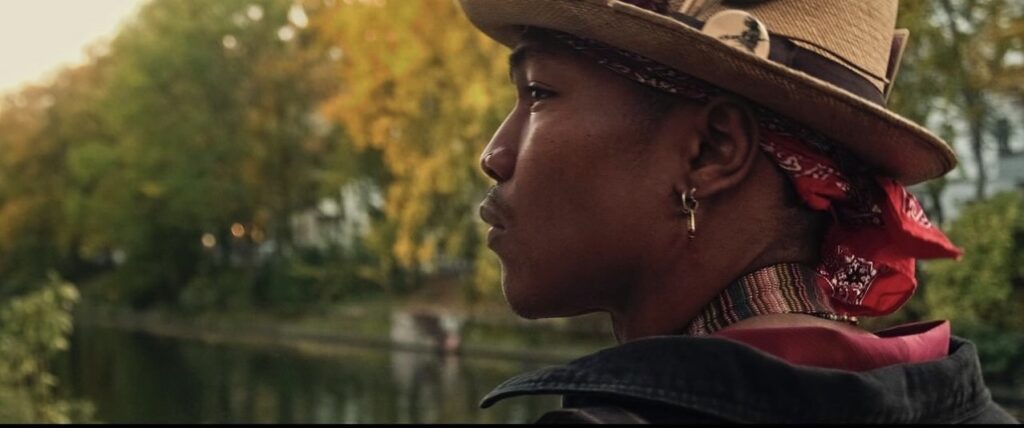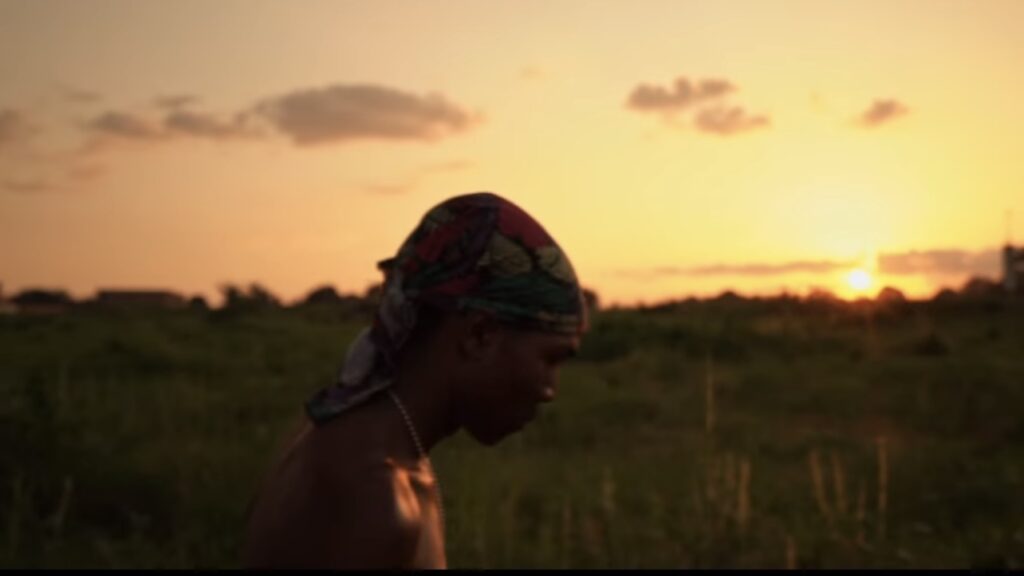Orango, directed by Samuel Kay Forrest, opens with a serene, majestic, and beautiful scenic view of tranquil waters at sunrise on the West African Coastal Islands of Guinea-Bissau. This calmness sets the stage for the emotional and spiritual storm to follow. Eny (Staniel Ferreira) is haunted by a vision of his childhood that propels him to leave his unfulfilling urban confines to follow the voices of his ancestors in a mission of true discovery. “Who am I?” and “Where do I come from?” are the key existential questions that are the basis for this cinematic journey.

Based on a True Story, this docu-drama starts in Berlin with Eny (Ferreira) who is an aspiring artist/painter in a loving relationship with his girlfriend Juliet (Marla Stock). Eny can’t escape his search for meaning and fulfillment, and feels like a large part of his life is missing without really understanding the roots of his family in colonial ravaged Western Africa. The port of Guinea-Bissau was one of the main sites for slave operations and where incarcerated humans left their African homeland for their enslaved journey to the New World. The remnants of that port exemplify the tragic scars of European oppression that made an imprint on all of Africa. With that backdrop, Eny wants to find out why his father (Obino Ferreira) did not try to reconnect with his family after he and his sister fled their homeland as war refugees over 17 years ago.
The deeply personal film, is written and produced by Ferreira, with cinematography from Samuel Kay Forrest. Forrest intercuts Eny’s polished narration with the raw docu-footage and skillfully creates tension with his camera movements and severe camera angles to capture his emotional trip back to the homeland. Eny’s powerful self-reflection is delivered in a very effective and gripping tone, as he describes his own cautious birthright proclamation as being “His father’s son with his mother’s heart”. Forrest uses the imagery of water in several interesting ways to draw the parallel between Eny’s dream and his past on the island of Orango, where innocence appears untethered by the scars of the civil war. We soon realize that his family experienced trauma on the deepest levels, and feels that he deserves an explanation from his father. Eny has a seemingly overly optimistic outlook that his father is looking to change and experience a sense of redemption from his family.

The color palette of Forrest’s beautiful cinematography is a wonderful mix of deep primary colors, where the orange tones of the island sky at sunrise and sunset are mixed with the lush covered canopy of surrounding villages. The dream vision of the beautiful little child with the green braids is hard to forget. The vibrant scenes of nature, are contrast with dark shadowy interior shots that help create a nice sense of dramatic tension and emotional peril for Eny. The fitting music choices from Phantoms of the Tribe and Amadou Mactar Mbaye and Joelle Keclart offer an authentic lush African mood, as Eny continues to search for his ancestry and clues to the dark past of separation and turmoil.
The film’s editing assemblage intercuts Eny’s prolific narration with shaky handheld camera movement that is capturing raw emotion as characters move in and out of frame to create tension and uneasiness for the audience. The audience is put in the middle of real family arguments with dark voyeuristic indulgence by Forrest. The emotional performance and gritty realism of Eny (Ferreira) keeps us focused with the anticipation for his journey to continue. Eny’s sister Titina (Stephanie Ferreira) plays an essential role as he stumbles upon clues from this family, yet the audience could have used more context and substance to his sister’s story, which is cut short by her departure back to the states.

The filmmakers accomplished their goal of showing that Eny is not able to escape his past, and finds new meaning in his poignant narrative towards the end, “The voice of my ancestors is calling me”. The politics of Ferreira and Forrest is subtle, and not heavy handed. They bring to focus the legacy of colonialism as West Africa continues to search for a path forward.
Orango lets the audience realize that we need to understand the injustices and failures of the past, in order for humanity to avoid making the same mistakes in the future. Eny learns that he cannot escape his past, and brings the audience along for his beautiful journey.


